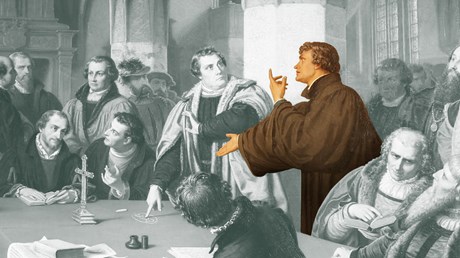A new biography captures the misunderstood faith of Huldrych Zwingli.

Huldrych Zwingli (1484–1531) has not usually fared well at the hands of historians. Whether cast as Martin Luther’s antagonist or as John Calvin’s (largely forgotten) understudy, the Zurich reformer has been widely misunderstood, oftentimes vilified, and frequently ignored. Even in death, Zwingli proved to be controversial: Though a fierce opponent of the Swiss mercenary system, he perished in battle, sword in hand, seeking to extend Reformed Christianity to neighboring Catholic territories.
In his insightful new biography, Zwingli: God’s Armed Prophet, historian Bruce Gordon offers a compelling interpretation of this 16th-century preacher, theologian, political strategist, and self-styled prophet, demonstrating that Zwingli’s creative vision of church, sacrament, and sacred community forged a new form of Christianity that came to be known as the Reformed faith. For Gordon, Zwingli’s creative but combative leadership in Zurich proved to be “remarkably generative, fecund, and destructive.”
The embattled reformer
Born in the high Alpine village of Wildhaus on January 1, 1484, the boy Huldrych Zwingli grew up in a world of subsistence farming, Catholic piety, and stunning natural beauty. From an early age, he developed a deep attachment to the Swiss Confederation, its land and people.
Zwingli’s formal schooling took him to Basel, Bern, Vienna, and then back to Basel (where he earned a bachelor’s degree in 1504 and a master’s in 1506). This academic journey instilled in him a permanent love for humanistic learning, including the study of classical Greek and Roman literature, the mastery of the biblical languages, and the application of Scripture for the renewal of ...
from Christianity Today Magazine
Umn ministry


.gif)

.gif)
.gif)
